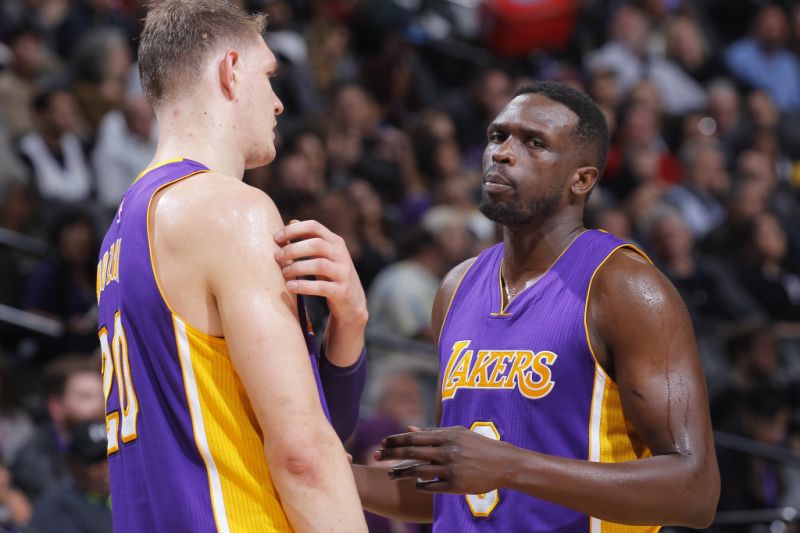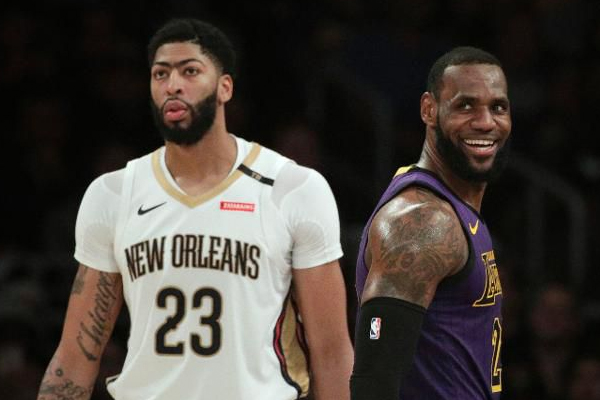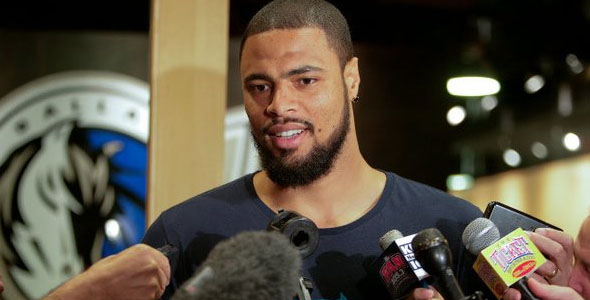
The Los Angeles Lakers’ decision to give Timofey Mozgov, now of the Brooklyn Nets, and Luol Deng massive contracts in 2016 free agency is starting to make sense.
It remains indefensible, to be sure. They were on the rebuilding track at the time. No one liked Mozgov’s four-year, $64 million pact. He was coming off a down season with the Cleveland Cavaliers, even though they won the title, and the NBA in general was moving away from lumbering towers. Deng’s four-year, $72 million agreement was slightly more justifiable, but only slightly; he was at least a combo wing coming off a quality season with the Miami Heat.
Still, neither fit the Lakers’ timeline. Even if the team thought they could lop off one in trade talks no matter what, adding both was always a puzzling, and inexplicable decision.
So why all the spending-spree shenanigans? Well, the Lakers apparently thought there would be an amnesty clause in what is now the latest collective bargaining agreement, according to Basketball Insiders’ Eric Pincus:
[tweet https://twitter.com/EricPincus/status/927724275452166144]
Good. Friggin’. Gawd. What logic. Imagine banking on the opportunity to pay one of your players lots of money to not play for you. That’s some logic, and it speaks to why Jim Buss and Mitch Kupchak no longer hold front office positions with the Lakers.
Now the new regime of team president Magic Johnson and general manager Rob Pelinka must pick up the pieces. And, to their credit, they’ve already started a successful pivot. Sort of.
Mozgov is already gone, though it cost D’Angelo Russell, a No. 2 prospect, to get him off the ledger. Johnson and Pelinka have now moved on to Deng. But it’ll take a similar sweetener to get rid of the two years and $36.8 million he’s owed after this one—and even then, the Lakers cannot guarantee they won’t have to take back any money in return.
Let this be a lesson to other front offices: Don’t ever bank on an amnesty clause ever again.
(As an aside, were the Washington Wizards, Orlando Magic and New York Knicks thinking along the same lines when they signed Ian Mahinmi, Bismack Biyombo and Joakim Noah, respectively, to lucrative deals back in 2016?)




















